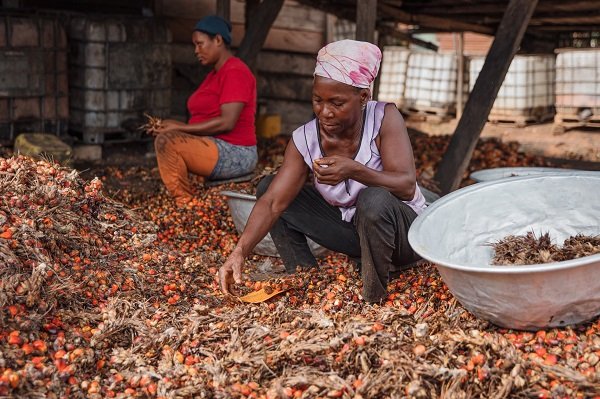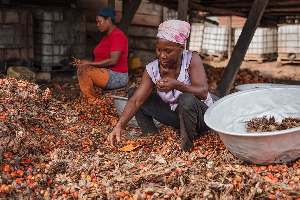The long-term sustainability and competitiveness of the country’s oil palm industry is being questioned.
This is because the industry is grappling with significant production shortfalls. Despite an annual output of approximately 350,000 metric tonnes, domestic demand has surged to around 400,000 metric tonnes – creating a deficit of about 50,000 metric tonnes each year.
Experts caution that this persistent gap not only undermines self-sufficiency but also places local processors at a disadvantage, forcing them to rely on expensive imports to fill the supply gap.
Director-Oil Palm Research Institute, Council for Scientific and Industrial Research (CSIR), Dr. Isaac Danso believes the situation is a “wake-up call” for all stakeholders and stressed the need for a comprehensive value chain overhaul from seed production to processing.
“Without it, even the best farming practices will not deliver the desired yields”, he added.
CSIR’s Oil Palm Research Institute, established in 1964, has since developed over 1,200 technologies aimed at enhancing productivity.
However, according to the Oil Palm Development Association of Ghana, oil palm exports for 2024 dropped by more than 50%. Association president Samuel Avaala said the decline is due to lack of support for the sector and an influx of cheap oil from other countries.
He urged government to step up efforts against the illegal infusion of foreign oil products, which are affecting local producers of the commodity. The palm oil production gap in Ghana requires significant investment for expanding local production capacities.
While Ghana consumes approximately 450,000 metric tonnes of palm oil annually, predominantly used in products like vegetable cooking oil, local production only meets about 300,000 metric tonnes of this demand – leaving a substantial gap of 150,000 metric tonnes that must be imported.
Starting July 14, this year (2025), the Tree Crops Development Authority (TCDA) will require all palm oil importers to register and obtain official permits to operate in the country. The new regulation, announced on June 17, covers imports of Crude Palm Oil (CPO), Crude Palm Olein and Refined Palm Olein.
The move is intended to stabilise Ghana’s domestic market, which has been disrupted by unregulated imports. The import control measure comes as Ghana prepares to roll out a new industrial policy for the palm oil sector.
Announced in April by Finance Minister Cassiel Ato Forson, the policy targets developing 50,000 hectares of industrial palm oil plantations to expand raw material supply for domestic processing.





